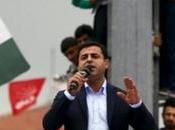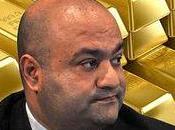Qualche giorno fa abbiamo avuto il piacere di intervistare Giuseppe Civati, politico e blogger italiano.
Innanzitutto Giuseppe ci ha raccontato quale è stato il percorso che lo ha portato ad occuparsi di politica: prima la scuola, poi i Giovani Progressisti, quindi i comitati per Prodi e la politica istituzionale, per diventare infine Consigliere Regionale della Regione Lombardia. [video]
Abbiamo chiesto come sarebbe stata la sua manovra finanziaria, se fosse stato al governo: Giuseppe sostiene che la scelta giusta sia di far pagare la crisi a chi se lo può permettere, non a chi è più in difficoltà.
Patrimoniale sì, dunque, soprattutto l'idea di passare da una tassazione pesante sul lavoro e sull'impresa a una tassazione più modesta, intervenendo invece su chi ha grandi disponibilità immobiliari che bloccano il paese, e che comunque sono la forma di investimento più remunerativa e meno tassata. [video]
 Il berlusconismo, secondo Giuseppe, non inizia e non finisce con Berlusconi, anche se sta attraversando un periodo di grande crisi, sia dal punto di vista politico che dal punto di vista morale.
Il berlusconismo, secondo Giuseppe, non inizia e non finisce con Berlusconi, anche se sta attraversando un periodo di grande crisi, sia dal punto di vista politico che dal punto di vista morale.La maggioranza parlamentare c'è, anche se il Parlamento è di fatto bloccato da meccanismi di ricatto molto volgari. [video]
Abbiamo chiesto a Giuseppe se a suo avviso il DDL Intercettazioni passerà: il progetto del Presidente del Consiglio, a quanto pare, è di chiudere tutti i boccaporti, evitare che ci sia un dibattito pubblico informato e limitare la possibilità di esprimere la critica sulla base di dati reali.
E' già stata messa una pesante ipoteca sul servizio pubblico televisivo, con l'esodo dei giornalisti scomodi dai canali di Rai e Mediaset. [video]
Per una politica che ormai ha perso di vista i suoi obiettivi, è necessario cercare dei nuovi interpreti, liberi e a "scadenza naturale", con un limite al numero di mandati per cui è possibile candidarsi.
Abbiamo parlato di un modello possibilmente migliore di legge elettorale, che Giuseppe ha individuato nel doppio turno "alla francese", come già avviene nell'elezione dei sindaci, un modello che potrebbe garantire una maggiore governabilità e una scelta informata e articolata.
Persino con la Legge Calderoli, il cosiddetto Porcellum, sarebbe possibile sanare la situazione: basterebbe semplicemente scegliere i parlamentari con le primarie, ma questa proposta non è mai stata attuata. [video]
Per concludere Giuseppe ha parlato dei punti della sua agenda digitale per l'Italia, della sua idea di Europa, delle pensioni e del precariato, esprimendo la sua opinione riguardo a quelli che potrebbero essere i provvedimenti adatti per risolvere i problemi relativi a questi aspetti.
Giuseppe ha naturalmente risposto alle vostre domande, quindi invito tutti a visionare l'intervista integrale, molto più ricca di informazioni e dettagli rispetto a questa mia breve sintesi.
Buona visione!
Maria Petrescu
Photo credit: Carlo Traina
Intervistato.com | Giuseppe Civati
A few days ago we had the pleasure of interviewing Giuseppe Civati, Italian politician and blogger.
First of all, Giuseppe told us about the path that brought him to deal with politics: school, then the Giovani Progressisti, then the committees for Prodi and the institutional politics, and finally the place as a regional counselor for Regione Lombardia. [video]
We asked what his financial manneuver would have been like, had he been in the government: Giuseppe says that the right thing to do would be make those who can afford it pay the crisis, not the ones that have the biggest financial difficulties.
Yes to the capital levy, especially to the idea of lowering the taxation of work and enterprises, and increasing the taxes for those who have great real estate properties that block the country, and that are the most profitable and less taxes form of investment. [video]
Berlusconism, in Giuseppe's opinion, doesn't start and doesn't finish with Berlusconi, even though it is now facing a period of great crisis, both from a political and a moral point of view.
The Parliament majority is there, even though the Parliament itself is blocked by very vulgar blackmail mechanisms. [video]
We asked Giuseppe if in his opinion the DDL Wiretappings will pass: the Prime Minister's project seems to be to close every hatchway, avoid an informed public debate and limit the possibility of expressing critics on the base of real data.
The public television service is already paying a great price, with the most troublesome journalists leaving Rai and Mediaset. [video]
For politics that has lost its goals, it is necessary to find new interpreters, free and with a functional deadline, for example a limit to the number of mandates they can candidate for.
We talked about a possibly better model of electoral law, that Giuseppe has identified in the "majority" system, as for mayor election, a model that might guarantee a better guvernability and a more informed and elaborated choice.
Even with the Calderoli Law, known as Porcellum, it would be possible to find a viable solution: it would only be necessary to choose members of Parliament with the primary elections, but this proposal has never been applied. [video]
In conclusion Giuseppe has talked about the points of his digital agenda for Italy, of his idea of Europe, of retirement pensions and temporary employment, expressing his opinion regarding the solutions that might solve the problems relative to these topics.
Giuseppe has obviously answered your questions, so I invite everyone to view the full interview, much richer in informations and details than my brief synthesis.
Enjoy!
Maria Petrescu





